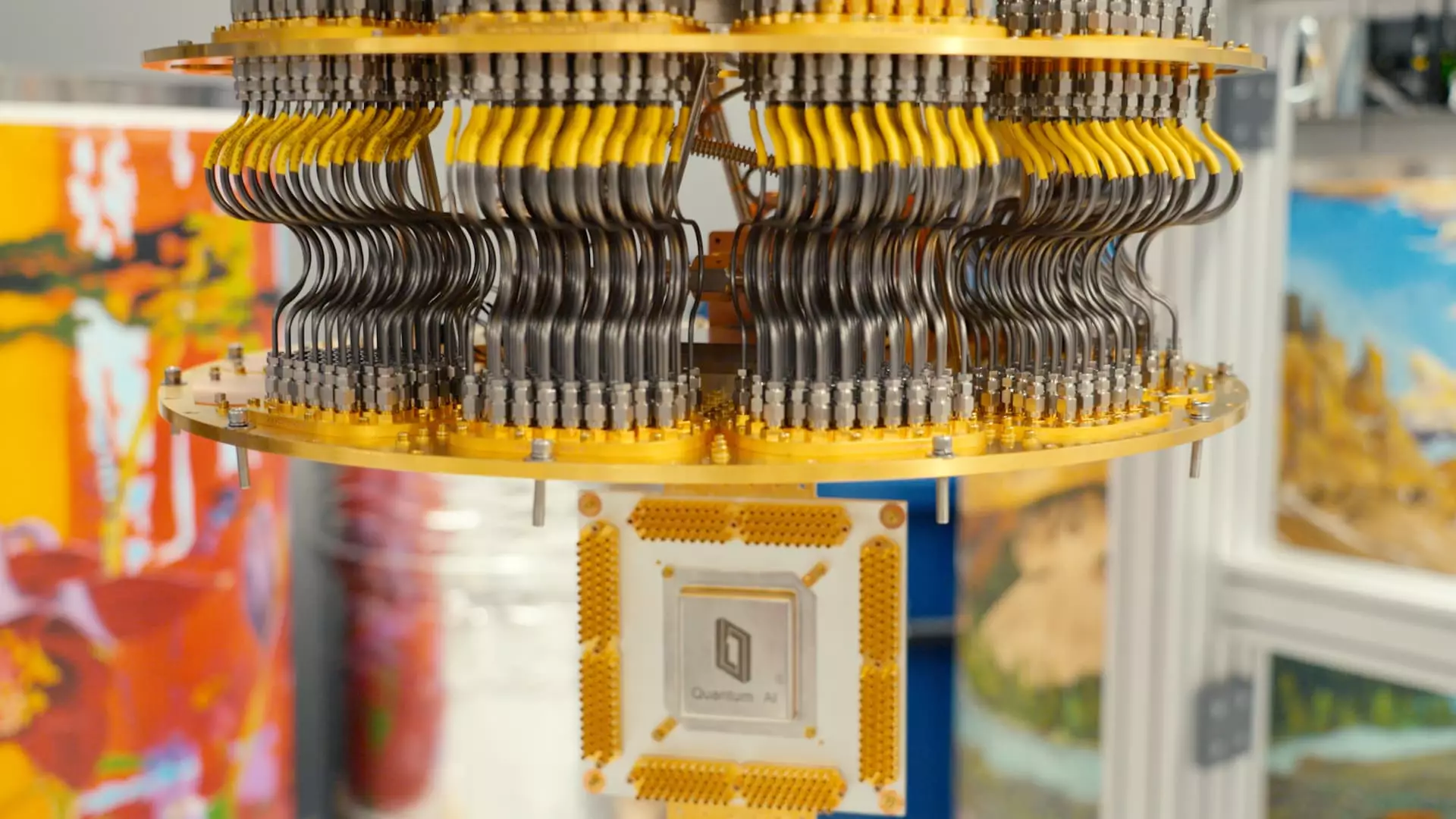Deep within the picturesque landscape of Santa Barbara, California, a profound battle for the future of technology is not only brewing but intensifying. Alphabet, the parent company of Google, is covertly working on groundbreaking quantum technologies that could fundamentally change the landscape of artificial intelligence (AI). This effort reflects a strategic pivot aiming to leapfrog competitors and reclaim lost ground. As highlighted by Julian Kelly, director of hardware at Google Quantum AI, there’s a synergistic potential between quantum computing and AI that could propel both domains into unprecedented realms of capability.
Playing Catch-Up in AI
Despite its storied legacy in technology, Google has faced criticism for lagging behind in the generative AI revolution following OpenAI’s successful launch of ChatGPT. This perception of tardiness has sparked urgent action within the organization. The unveiling of the Willow quantum computing chip marked a critical turning point; it demonstrated capabilities that far exceed classical computation. Such advancements are not merely technical milestones; they underline Google’s commitment to innovation and its recognition that leading in AI requires an equally strong foothold in quantum technology.
Turning Challenges into Opportunities
As AI models approach the limitations of classical data generation, the rise of quantum computing could offer a vital solution. Researchers acknowledge that current AI methodologies are constrained by the availability of quality data. Enter quantum computers, which can potentially generate new and diverse datasets that would invigorate AI training processes. Kelly’s insight on AlphaFold—a groundbreaking AI model that capitalizes on data informed by quantum mechanics—illustrates the synergistic promise of combining AI and quantum resources. In this context, quantum computing could redefine data generation paradigms, providing AI with the raw materials needed for even more sophisticated learning.
Anticipating a Paradigm Shift
Experts like John Preskill from Caltech have heralded Willow as a pivotal development within computing history. This chip not only accelerates problem-solving speed but also diminishes error rates as qubits multiply, a previously elusive balance in quantum computing. As Google continues to refine this technology, it stands on the precipice of a potential quantum renaissance that could recast its role in both AI and broader technological contexts. Kelly optimistically envisions that practical applications from quantum breakthroughs are roughly five years away. Such optimism is a testament to the belief that quantum computers will soon transition from theoretical marvels to indispensable tools in research and industry.
The Collaborative Future of Quantum and AI
The intertwining of quantum computing with AI is not mere speculation but represents a fundamental shift in how technology could evolve. As Google aims to harness quantum advancements, the landscape of machine learning, data generation, and computational problem-solving could be irreversibly transformed. The trajectory set by Willow reflects a conscious effort by Google to not only catch up but to re-establish itself as a frontrunner in the next technological wave. The notion that quantum-generated data can significantly supplement AI models is an exciting frontier that could reshape scientific inquiry and industrial applications alike.
In a rapidly changing dynamic, Google’s strategy emphasizes that the future of technology may very well hinge on the seamless integration of quantum and AI, where both domains can leverage each other’s unique strengths for groundbreaking advancements. The outcome of this endeavor could mark a revolutionary shift in understanding not just computing, but the very nature of intelligence itself.


Leave a Reply